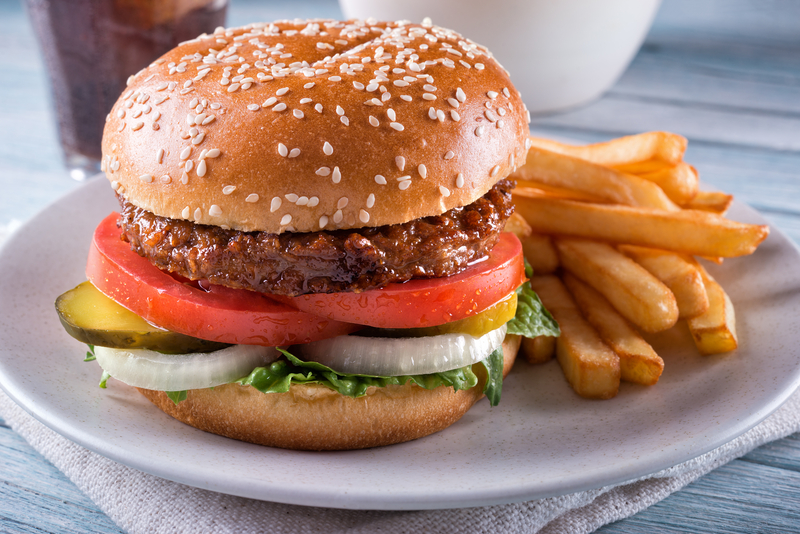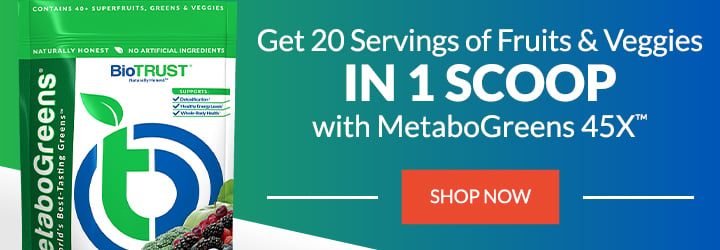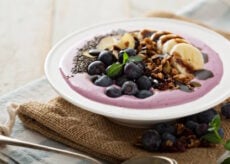Are Plant-Based Meats Any Better For You?

“Even meat lovers won’t be able to tell the difference!”
Meat substitutes aren’t just for vegans and vegetarians anymore. Over the past few years, the food industry has been working on developing plant-based “meats” so close to the real thing, even accustomed meat-eaters would not be able to distinguish them from the real thing.
Odds are you have probably heard of or seen these plant-based meats as their popularity has taken them to grocery store shelves and restaurant menus across the country. As their fame continues to grow, it seems like everyone is trying to jump on the plant-based meat bandwagon. But why?
What Are the Benefits of Plant-Based Diets?
Well, for one, plant-based meats, although not a new concept, are fresh and exciting. Very few options used to exist when it came to meat substitutes, and none of them could truly replace the juicy, meaty flavor of real meat. However, claims to uphold the great taste and texture have sparked curiosity. The hype has us all wondering if you really can’t tell the difference. Even more, the many variations of these plant-based substitutes have us wanting to try every version to find the one that really can pull the wool over our eyes.
Secondly, plant-based diets are more popular now than ever before. There is more and more science supporting the benefits behind plant-based diets, and most of us have heard it’s good to cut down on red meat. Plant-based diets have been shown to lower the risk of cardiovascular disease, diabetes, and help weight management overall. Not to mention many of our favorite celebrities are now on plant-based diets, and if it works for them, it will work for us… right? (Not necessarily. But we can talk about that later.)
Lastly, the impact. We can all agree we love the earth we live on, and just like our own homes, we want to live somewhere clean. So, reducing the environmental impact of our food can help keep it that way. Additionally, with the growing population, we should always be open to exploring how to become more efficient at producing more food with fewer resources.
All things considered, plant-based meat definitely has our attention, but is it really any better for us?
But, Are Plant-Based Meats Actually Healthier?
It is a common belief that going plant-based is always the healthier option, so by choosing plant-based alternatives, we are making more health-conscious decisions. Unfortunately, this is not always the case. There is a lot more that needs to be considered when making your food choices. As a result, plant-based meat has provoked much debate among health professionals and nutritionists.
Among the many plant-based meat companies in the marketplace, consumers are likely most familiar with Impossible™ Foods and Beyond Meat®, which have gained recognition as the faux-meat burger options. These products have even made their debut in restaurant chains such as Burger King, White Castle, Qdoba, Carl’s Jr., Del Taco, and Red Robin, which have adopted plant-based menu options.
Burger King, which was one of the first fast-food chains to introduce the Impossible Burger, has experienced its strongest sales growth since 2015 as a result of the plant-based burger. 1 And these plant-based menu items have spiked so much in popularity that it is now difficult to even get your hands on them.
So, what exactly is in these plant-based meats? Let’s take a look….
Impossible Burger Ingredients: Water, Soy Protein Concentrate, Coconut Oil, Sunflower Oil, Natural Flavors, 2% or less of: Potato Protein, Methylcellulose, Yeast Extract, Cultured Dextrose, Food Starch Modified, Soy Leghemoglobin, Salt, Soy Protein Isolate, Mixed Tocopherols (Vitamin E), Zinc Gluconate, Thiamine Hydrochloride (Vitamin B1), Sodium Ascorbate (Vitamin C), Niacin, Pyridoxine Hydrochloride (Vitamin B6), Riboflavin (Vitamin B2), Vitamin B12.
Beyond Burger Ingredients: Water, Pea Protein Isolate*, Expeller-Pressed Canola Oil, Refined Coconut Oil, Contains 2% or less of the following: Cellulose from Bamboo, Methylcellulose, Potato Starch, Natural Flavor, Maltodextrin, Yeast Extract, Salt, Sunflower Oil, Vegetable Glycerin, Dried Yeast, Gum Arabic, Citrus Extract (to protect quality), Ascorbic Acid (to maintain color), Beet Juice Extract (for color), Acetic Acid, Succinic Acid, Modified Food Starch, Annatto (for color).
After reading through these ingredients lists, I was a little surprised for two reasons. One, because of the many, many ingredients listed, and two, the lack of actual plants. As these are called “plant-based” choices, I was expecting to find more natural, whole ingredients such as legumes, beans, and leafy vegetables. Turns out, there is a lot of processing that goes into making these plant-derived ingredients, such as purified soy or pea protein.
In plant-based protein products, protein is extracted and isolated from the plant, then combined with other plant-based ingredients, such as coconut and canola oils, rice protein, potato starch, heme, and methylcellulose. As a result, many health professionals consider these plant-based meats to be “ultra-processed” foods.
So, How Do Plant-Based Meats Compare to the Real Thing?
The nutritional content of these plant-based meats is similar to beef, with plant-based meat being about equal in calories and saturated fat, and even higher in carbs and sodium. Contrarily, plant-based meats have zero cholesterol and do provide more fiber.
The USDA-recommendation for fiber is 28 grams per day, and most Americans typically get only about 15 grams. However, the fiber found in these non-meat options is added to the ingredients and not found naturally from foods like legumes, nuts, seeds, or whole grains. Still, it’s worth remembering traditional beef burgers do not contain any fiber.
What about the environment? Beyond Meat says it uses 99% less water, 93% less land, and 90% less fossil fuel emissions. 2 Whereas Impossible Burger’s website says it uses 87% less water, 96% less land, and 89% less fossil fuel emissions than a quarter pound of regular ground beef. 3 There is no doubt these statistics are impressive and would make a monumental impact on the environment. Beyond Meat even compares this to the equivalent of taking 12 million cars off the road for an entire year—or saving enough electricity to power 2.3 million homes!
Although these numbers are great, it is important to remember that plant-based meat alternatives do still produce emissions into the environment. When broken down, plant-based meats produce about the same amount of emissions as chicken, which is about five times the emissions of legumes and vegetables. Consequently, vegetables continue to remain the cheapest and most sustainable option.
Which brings us back to the health benefits accompanying plant-based diets. First, let’s try to define what a plant-based diet is. A plant-based diet can be interpreted in several different ways. It can mean your diet mainly focuses on consuming foods from plant sources with the occasional addition of meat, fish, and dairy products (aka, flexitarian). Or a plant-based diet can be interpreted as being equivalent to a vegetarian or vegan diet. These all are acceptable ways of following a plant-based diet and can lead to similar benefits.
One reason why people may choose to go plant-based is to reduce their consumption of red meat. Historically, red meat has received a negative reputation, and many recommend limiting meat consumption to 12 – 18 oz or 3 portions per week.
Studies also show that replacing red meat with nuts, legumes, and other plant foods can lower mortality and chronic disease risk. However, they aren’t able to speculate that processed burgers made with purified soy or pea protein will have the same health benefits. 4 There’s also a lot of debate on the health benefits of consuming red meat. If you want to learn more about the science, you can find out here if red meat is actually good for you.
Other Reasons to Choose a Plant-Based Diet
Another reason why folks want to cut down on meat is to reduce the amount of antibiotics found in their food. Although the chances of consuming antibiotics through foods are low as extremely low doses are used and the US Department of Agriculture (USDA) has a strict process of testing for unwanted compounds, including antibiotic residues, consumers are becoming more aware of eating clean. Regardless, at this time, there is no clear-cut evidence directly linking antibiotic use in food-producing animals to increased illness, and it has been concluded that the danger to health is minimal. 5
There are many other reasons to choose a plant-based diet, and clearly, the decisions on if and how is influenced by your own beliefs, values, and bodies. And these reasons are all worthy.
One major characteristic all these plant-based diet variations have in common, though, is they avoid or limit the consumption of processed foods. In fact, this is one of the key aspects contributing to the success of plant-based diets. Processed foods have been linked to conditions such as heart disease, obesity, and diabetes. Even more, it is believed that “eating processed foods and fast foods may kill more people prematurely than cigarette smoking.” 6
One study took an in-depth look into plant-based diets comparing healthful and unhealthful plant foods. Nutritious plant-based diets included whole grains, fruits/vegetables, nuts/legumes, oils, tea/coffee, whereas less-healthy plant foods included juices/sweetened beverages, refined grains, potatoes/fries, and sweets. Researchers found a higher intake of healthier plant foods is associated with substantially lower chronic heart disease risk. 7
This doesn’t mean to say indulging in processed food sometimes is a bad thing. It is good to enjoy your food, and if you are regularly following a healthy diet, it’s alright to eat processed foods occasionally. However, if you find yourself frequently eating processed foods or red meat, you may want to think about reducing your consumption. If you don’t know where to start, you can always explore different diets such as the Flexitarian Diet, the Mediterranean Diet, or Dash Diet.
Is a Plant-Based Diet Really Any Better?
So, going back to plant-based meat and our overarching question—is it really any better for you? Plant-based meats can fit into a nutrient-dense diet in moderation, as can regular beef burgers. There are trade-offs for choosing each. Although these popular plant-based meats are not necessarily healthier than beef burgers, they do reduce the environmental impact of most traditional meats and are fine to eat from time to time.
But if you really want to find a more nutritious option, I suggest reaching for more natural, whole foods, which have minimal amounts of processing. Reducing your intake of processed foods is the true winner here, and there is plenty of science to back it up.
These plant-based meats can provide options for consumers to try something new and transition into cutting down on their red meat consumption, but there’s no need to replace your beef burger if you don’t enjoy them.
But this isn’t to say that more healthy meat alternatives don’t exist. There are still plenty of healthier options when it comes to consuming plant-based meats. Of course, as with most things, the best for your health and the best tasting, in my opinion, is to make it yourself. Making your food from scratch ensures you know what is going into it; plus, you can make it exactly to your liking. If you don’t know where to start when making your own plant-based meat recipe, we have you covered with this “Impossibly” Tasty Vegan Burger Recipe.
But if cooking is not your strong suit or you simply don’t have the time, you can explore other pre-made options in the grocery store. When selecting healthy food alternatives, it is important to understand what to look for on the nutrition label. Food labels can be confusing and make claims that make the food seem healthier than it actually is, especially if you don’t know what you’re looking for.
Below are a few tips for making smart choices when reading nutrition labels:
- Keep saturated fats, cholesterol, and sodium low and eliminate trans or hydrogenated fats.
- Watch out for added sugars—sugar can take many names, which you may not recognize, such as glucose, dextrose, fructose, high-fructose corn syrup, agave nectar, beet sugar, brown sugar, cane juice crystals, and many more.
- Look at the Percent Daily Value (% DV) column: 5% DV or less is low, 20% DV or more is high.
- Get enough of these: dietary fiber, vitamin A, vitamin C, calcium, and potassium.
- Always look at the first three ingredients—these make up the largest part of what you’re eating.
- Check the serving size—frequently, these are much smaller than what is typically consumed in one sitting.
- Be wary of claims such as low-fat, natural, and gluten-free—these don’t necessarily make the food healthier.
If you have had a chance to try any of the new popular plant-based meat options or have made your own version, we would be excited to hear your thoughts and experience!




 7 Signs Your Body is Seriously Low on Collagen (not just wrinkles)
7 Signs Your Body is Seriously Low on Collagen (not just wrinkles) Health Expert: "Turmeric Doesn't Work (unless...)"
Health Expert: "Turmeric Doesn't Work (unless...)" 3 Warning Signs Your Probiotic Supplement is a Total Waste
3 Warning Signs Your Probiotic Supplement is a Total Waste

